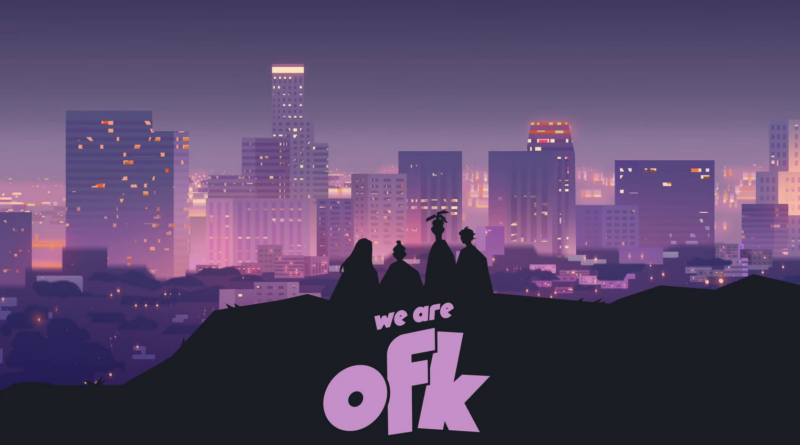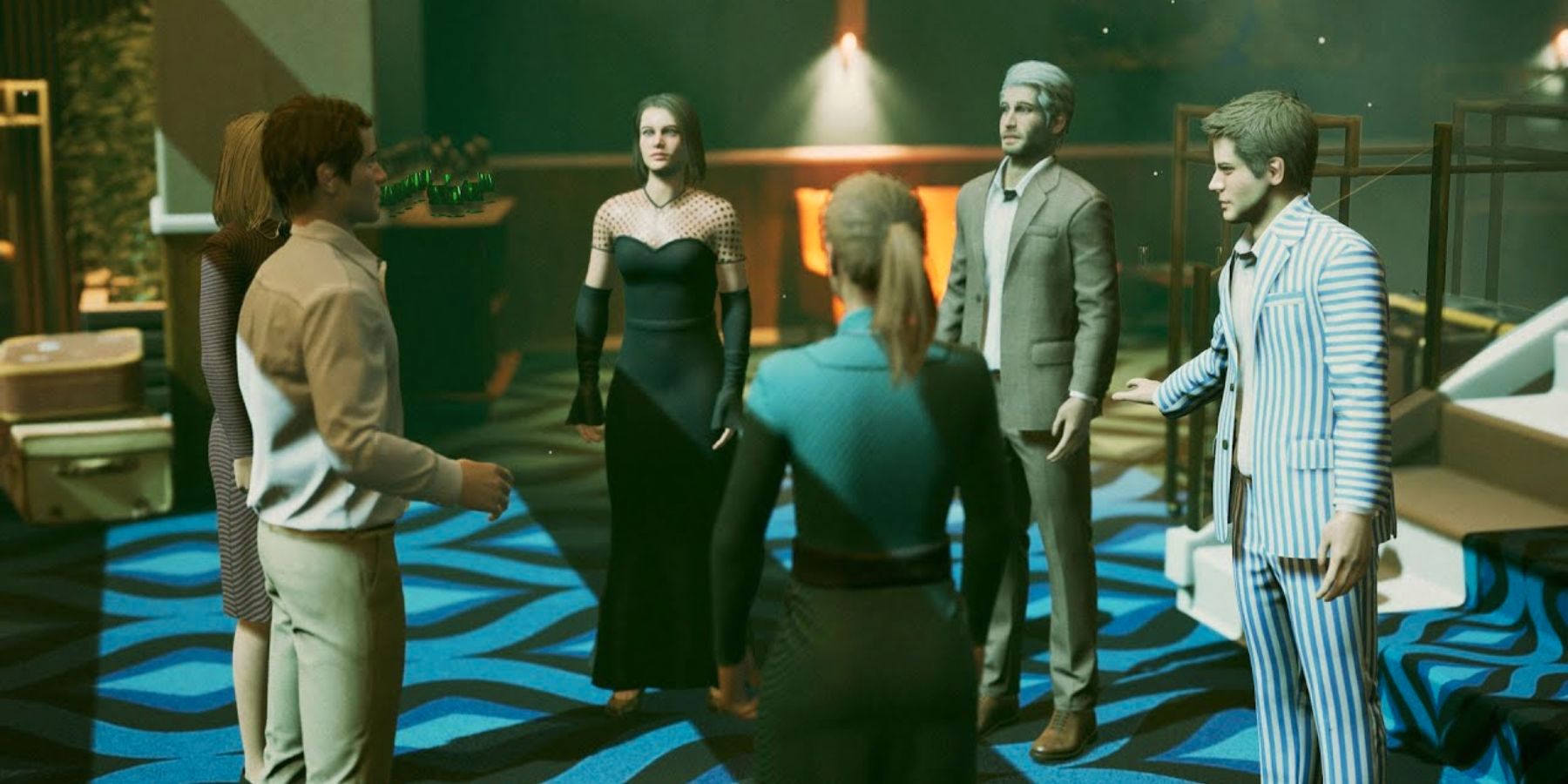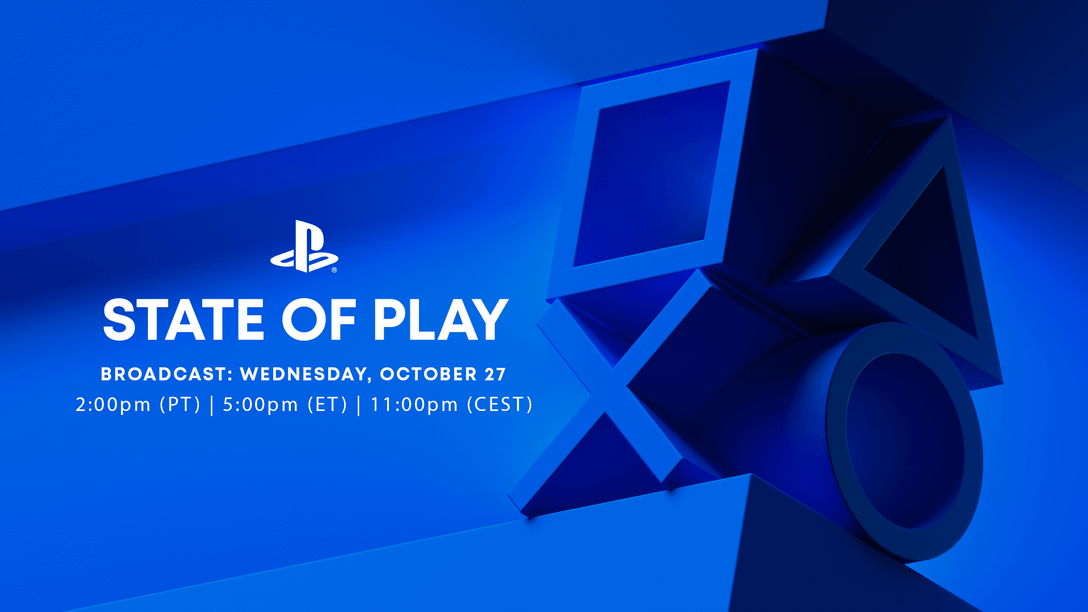We Are OFK Review (PS5) – The Thief of Time
All 5-parts of ‘We Are OFK’ are out now on PS5. The Finger Guns Review:
While playing the first two episodes of We Are OFK, a new fictional biographical visual novel about the forming of an indie band, I was struck by how much of it is about time; the lack of it and the wasting of it, both within the plot and with me as a player. We Are OFK is an episodic game about love, life, opportunities, conversation, music, gaming and forging a band. It’s also a little like a Seinfeld episode, in that it’s also about nothing. Two of the episodes are out now on PC and PS5, with the other three to follow weekly, each around an hour long.
We Are OFK respects your time. Each of the episodes is dealt with like the track of a 5 song EP. The hour duration is shown along the bottom of the pause menu like the scrubbable length of an mp3, and as you play you can see just how much time is left in the episode. Really good for travel, and really good for short gaming sessions.
I’m a late 30-something, with a new baby and no time. I have a maximum of 2 hours of time I can scrounge together in a day and dedicate to gaming. Episodic releases with short durations per episode – these feel tailor-made to my lifestyle at the moment. I got my first trophy pausing the first scene 30 seconds in, to go put my baby back to sleep. And then my second trophy when I came back. It autosaves after every 5 minutes or so. We Are OFK wants to fit around you and your life.
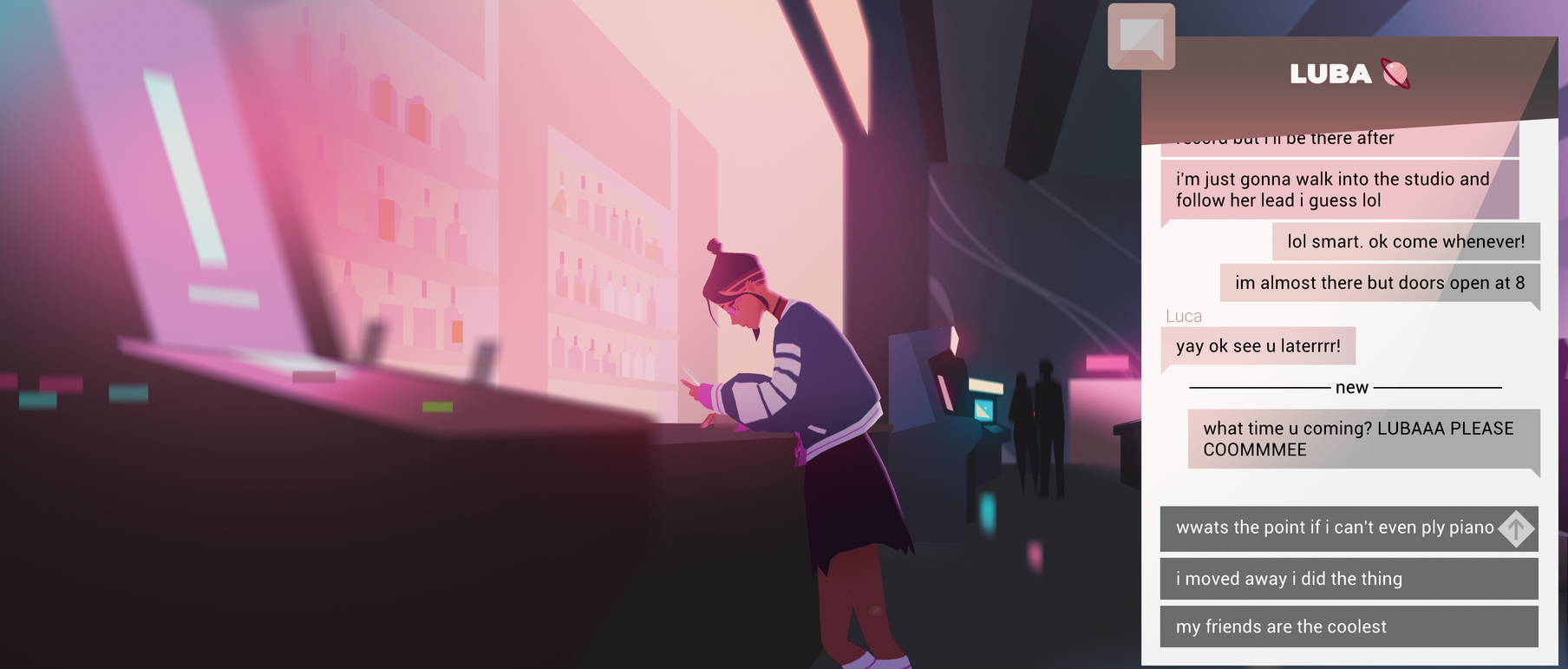
Episode One – Hooks
So what’s it actually about? Four young Gen Z’s with dreams. Itsumi, Luca and Carter live together in an apartment in LA. Luca and Itsumi work at a large corporate games company. Luca’s a wistful bisexual narrative writer who doesn’t get to express himself except through hobby music, Itsumi is in social media, but more importantly a frustrated pianist. She’s going through a breakup with a long-term girlfriend, and has moved cities to move on, and though you won’t learn everything you want to about her past in episode one, which is primarily framed around Itsumi, you learn enough, and it leaves space for revelations later in the story.
Carter is the third of the group and you learn next to nothing about them in episode one, just that they are a VJ which I assume to be a video jockey, producing visual arts for clubbers eyes while they make shapes on the dancefloor. They have a workaholic ethic, very much at odds with Itsumi and Luca’s swanning about and zoning out to social media. I also use they/them pronouns deliberately as Carter is not defined, at least not in episodes one and two. Hopefully, Carter will come to the fore in subsequent episodes and we will learn much more about them.
The moving plot of the first episode is Luca’s story, meeting Jey, the fourth and final of our four-piece. She is an Asian music producer who gives him a chance to send over some demos to play with, and towards the end of the first ep, recording vocals to a first track. At the same time, episode one is also the story of an anxiety-filled few days in LA for Itsumi, trying to move on after her breakup and finding life, and her upcoming live piano performance, overwhelming. She can’t make decisions, feels alone and cut loose from reality. This culminates in her strange lucid dream video game sequence, as Luca performs his vocals, we the player hear the first full OFK track, Follow/Unfollow, and play a slew of tiny video game vignettes with Itsumi as our avatar.
These range from remakes of Bricks, to 2D swimming sections, to posting stray cats into an ATM, which is an odd reference to American Psycho and the ATM that asks Patrick Bateman to Feed Me A Stray Cat. I wasn’t convinced the video game sequence really aided the telling of the story. It didn’t feel like an answer to any of Itsumi’s problems or Luca’s, nor was it a satisfying conclusion or movement in their arcs. It was more an excuse to make a trippy music video game sequence. By the time episode two rolled around, I felt more that the video game sequences were all Carter’s visuals somehow, but with Carter staying so far in the background in this episode, I couldn’t be sure that was deliberate.
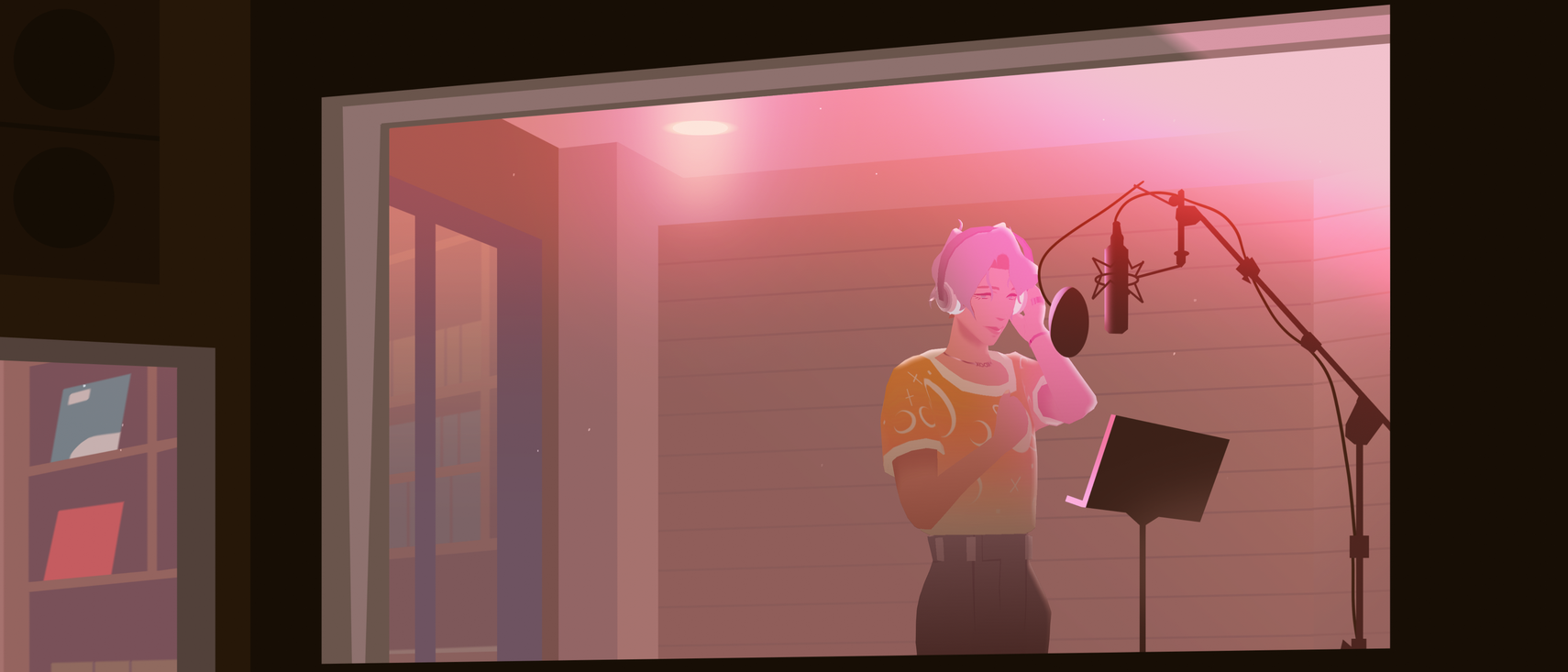
And what about the rest of the gameplay? Well for the most part you aren’t in control of much at all; you make decisions every minute or so during a scripted hour of the episode, but what you control is choices in speech, what to say etc, or what to text on a phone screen.
The decisions in conversations rarely feel like they have much meaning, or maybe its that they don’t have much weight. It’s all about whether to talk about Pokemon, or Moomins, or the fictional version of. Whether to fixate on art or fashion. It doesn’t seem to drive plot in any way, and that can get a little frustrating, and feel a little underwhelming. Like you aren’t very in control of what’s actually happening.
Think of it far more as a visual novel where you decide the flow, but not the destination. You can’t take the wheel and drive, but you can choose what we talk about on this 5-hour road trip.
I said it before – it’s a game about time. It’s a game about procrastination. Eighty percent of the plot happens in texts or conversations when the characters ‘should’ really be doing something else. Without their distracting conversations from what they perceive as monotonous day jobs or stress or anxiety, the episodes would be all of 10 minutes long. It’s also about mental health. Characters are hyper-anxious, paralysed in their pursuits by stress or anxiety and try to work through this with the help of friends. Even the band’s name, OFK is a reference to Oh Fucking K, like, stop talking so much.
I tried to think of my role not as the simple button pusher moving text along, but as helping them through the episode. Whenever the choices were something that stopped them procrastinating, and just did an action, I would leap on it like a digital cat on a laser. Help get them moving again, because the procrastination is all-encompassing.
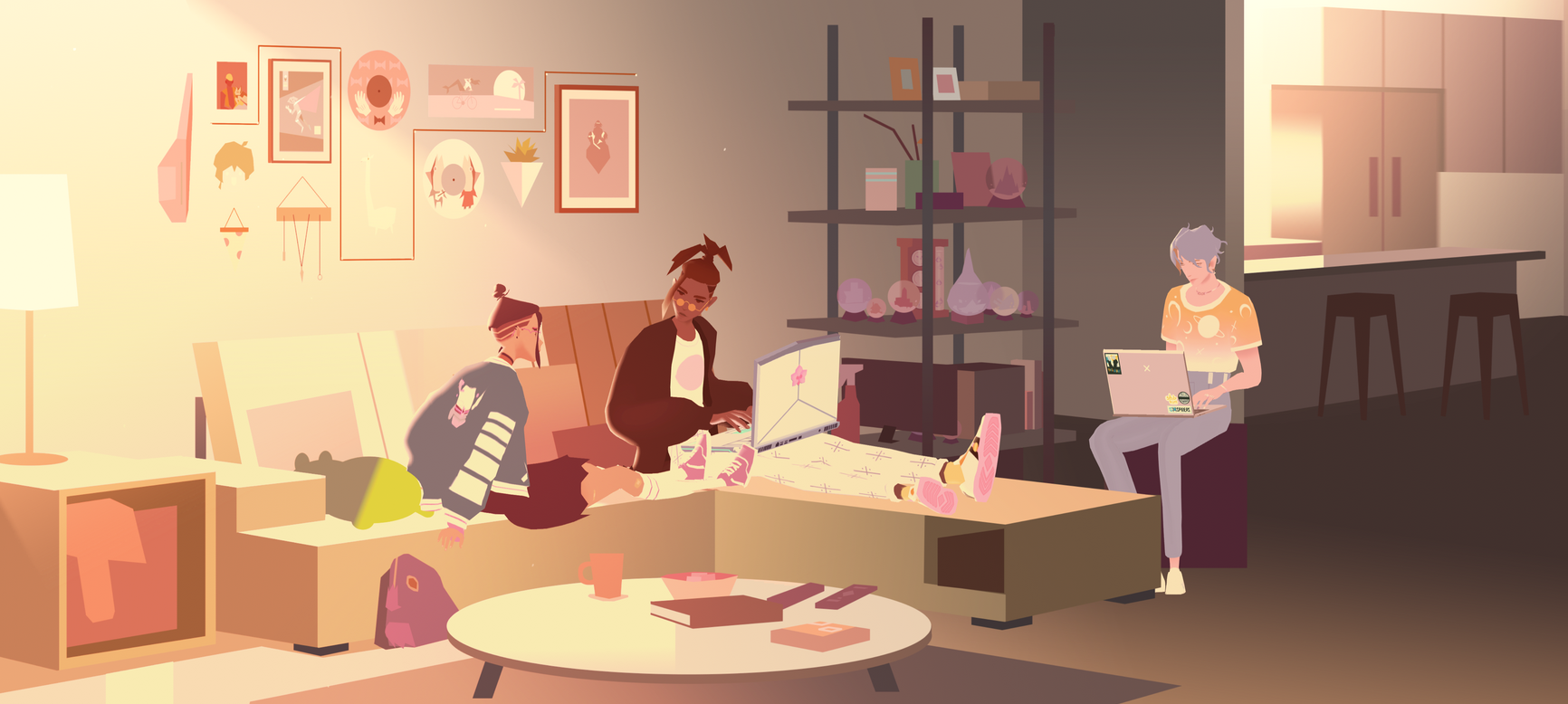
Episode Two – Loops
Episode two takes the procrastination and dials it up to eleven. One of the group is searching for a new job but instead of doing anything that might get them that job, they spend the whole episode avoiding it, avoiding friends and opportunities and getting swept away in something very temporary.
If you are a doer, the story of We Are OFK is going to hurt. I really started feeling for Jey in Episode 2, sending out the demos, getting on with things, and then just waiting constantly for others to respond. And you the player, know the other character is just procrastinating and could reply back any time, but no, they wait and put things off. It’s quite real in that respect, but it’s very frustrating.
The song Fool’s Gold is a much more intense broody synth piece than track 1, with lyrics that seem to fit episode 2 a little better, ruminating on Luca’s luck in love. But its accompanying gameplay section is a bit lame duck. Not sure what the square’s popping the circles game is really doing and this felt like a miss. However thankfully this time it was very clearly related to Carter doing the Visuals at a club night at the group’s favourite arcade/bar hangout, Kitase.
Graphically We Are OFK is pretty love it or hate it. It’s all hyper pastels and neon with a soft palette for the characters – you can barely see Luca’s face if your brightness is too high. It fits the bubble gum EDM indie synthy pop of the band’s music. On the other hand, it has a sort of generic clip art feel, like these characters were pulled from the dozens in a fashion student’s workbook. If you don’t like these screenshots, five more hours of it isn’t going to convince you.
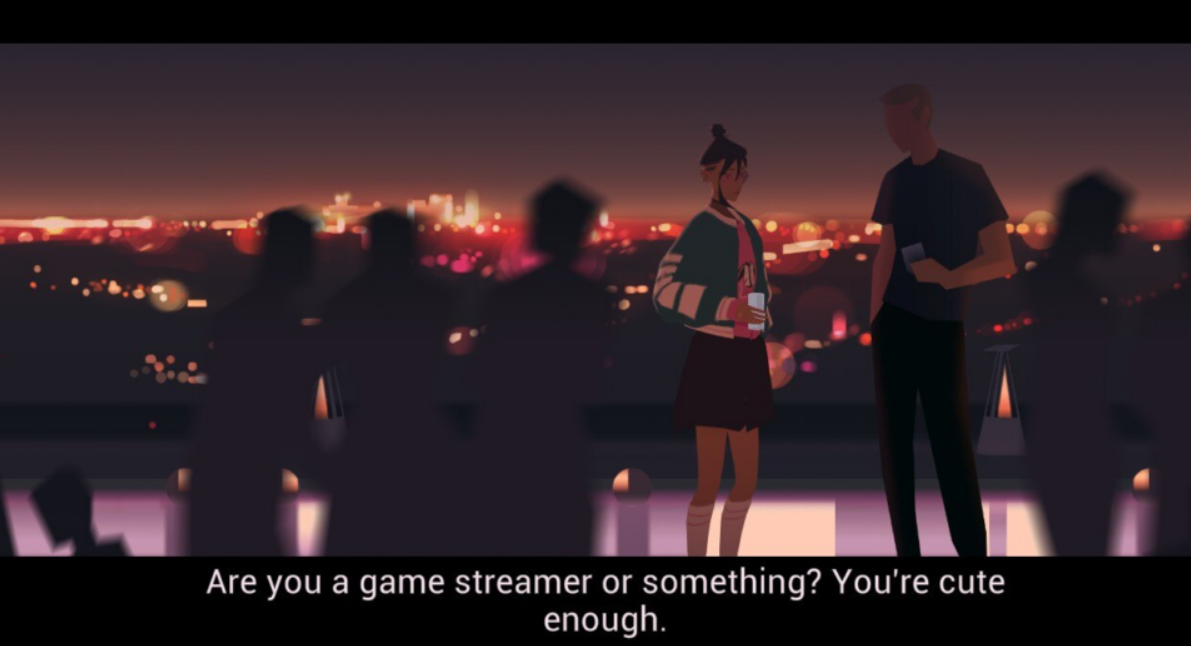
So I’ll some up the rest of these episodes a little more succinctly. I don’t want to spoil too much. But if you’re starting out and you really don’t want to know anything that happens, then stop reading here.
Episode Three – Smash
Episode 3 is more Jey’s episode than anyone else’s. We take a major break from Itsumi and Luca’s anxiety…and fall really hard into Jey’s. Some months have passed, songs have been completed and there’s a possible EP on the horizon. Jey attends a music biz party, is relatively successful at networking, but when the bigshot comes to listen to the band’s track, they brush it off, and offer Jey a job instead. A music producing job, but one that is full time and exclusive, and would kill her involvement in the band.
This episode’s strengths lie in dedicating most of its runtime to the internal struggles Jey is experiencing. What choice to make, the push and pull of parents, expectations and money versus dreams, her being unable to talk about it – she is filled with anxiety over telling her bandmates, and of course procrastinates instead, only leading to more explosive conclusion when everyone finally finds out. It’s all quite intense, and less annoying than Luca’s struggles in Episode 2 as it feels more weighty. There is a text exchange during Itsumi finally getting to do her concert, and it is particularly hardcore. Like I’ve had those kind of text conversations before and boy, it felt real. And tough.
This week’s song Infuriata fits as a visualisation of Jey’s mental state, and though the gameplay part was again pretty nondescript (again shooting things with a shape) the song was intense and introspective and brooding. Finally, I still know next to nothing about Carter, but fingers still crossed the next one is much more Carter.
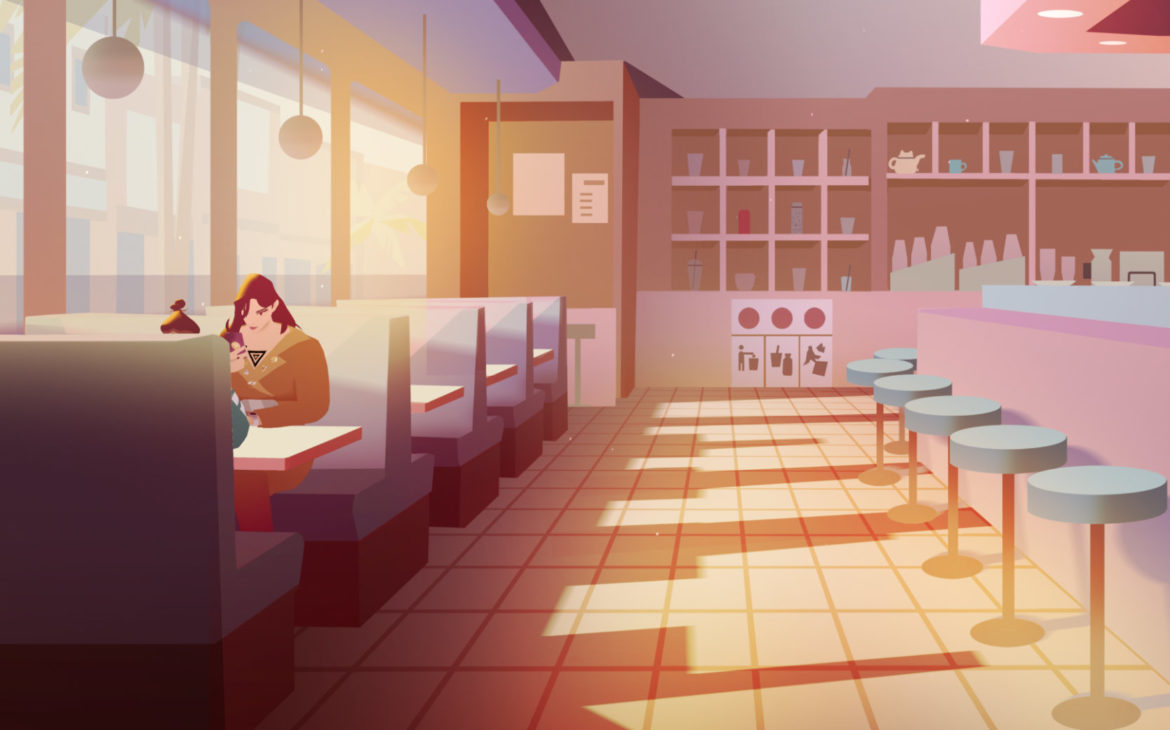
Episode Four – Splits
So I got what I wanted – most of an entire episode dedicated to Carter. Episode 4 is a road trip for Carter and Itsumi, which was mostly an excuse to get away from the city and for Carter to meet an old school friend. There’s some depth to this one as we explore what’s been making them sad and reclusive for the past 3 eps. This episode is a break from the main story – it’s the episode of Stranger Things with the Street Kids – but a break from the constant procrastination and Gen Z angst of the previous episodes was welcome. Even if it was a pretty heady episode entirely preoccupied with guilt. Hey, I’m starting to think there are no light upbeat episodes.
However as I thought that, Episode 4 came with catharsis, both within the episode for Carter themselves, and also as the fourth in a series of five episodes. The audience needed a break, and they also needed the peace, the self-actualisation, the clear-eyed look at things that this episode ends on. Despite its heady flavour, it ends in a positive place, with a relatively positive song considering the two that came before.
Lastly the gameplay segment, though once again nothing to write home about, had at least a more identifiable gameplay element to it. Carter skateboards down a neon highway and the player must jump and swerve to hit Cat tokens. It was another refreshing moment, to actually play something that felt a little more deliberate.
Episode Five – Mix
So with Episode Five I feel I can’t tell you much in a review. Don’t want to ruin everything with SPOILERS. Suffice to say we are back to the main story again.
I’ll say this much – there’s something not quite right in this episode. Not with the game, that’s still its peaceful melancholic self. No I mean in the plot. Everyone’s awkward, everyone’s upset, everyone’s backsliding. It’s all personified by the Band’s little sidekick cat Debug going on the fritz. Cue trying to solve the band’s final issues, spiralling with trying to resolve Debug’s…bugs?
This takes the form of a more involved game than the other episodes – a text adventure visualisation by Carter, that slowly draws the members of the band back together, at least to the point of talking. I won’t spoil anything else, suffice to say the last episode is aptly about catharsis finally, resolutions and mending what’s broken. It’ all seems so simple when everyone just gets out of their own way. With the inclusion of the text adventure and the heartfelt plot, episode five is the strongest since episode one, and they are all up there. The final playable section is once again a little underwhelming, but it’s not a surprise at this point. The Song is however one of their best, and a poignant and moving final piece to bop to.
The Songs
We Are OFK is a game based around a 5 track EP, so how good is the music? Well, the rest of the soundtrack is a floaty synth soundscape composed by Omniboi which really fits with the whole aesthetic and I definitely enjoyed.
The first of the OFK tracks, Follow/Unfollow is a nice bubble gum synth-pop piece, and I certainly would have given it a few more listens even outside the game.
Track 2, Fool’s Gold, is a much more intense broody synth piece than track 1, with lyrics that seem to fit episode 2 a little better, ruminating on Luca’s luck in love.
Track 3, Infuriata, is a dark, almost scary piece that I enjoyed and found interesting, but would be really unlikely to play much more by choice.
The fourth track, Footsteps, is a driving and upbeat song, with a more anthemic tone. It’s a palette cleanser after the previous two dark pieces, and more in keeping with track 1.
Track 5 is a great, cathartic anthemic track to close out the album, aptly called simply ‘thanks’. It’s nice to close out with something more upbeat after the melancholy of the middle section of the EP.
Overall, a pretty strong set of songs, even if a good chunk aren’t very danceable. They are definitely enhanced by the story that goes with them, but if you don’t have five hours to invest to listen to the music – you can listen to the whole album whenever and wherever you want on Spotify here.
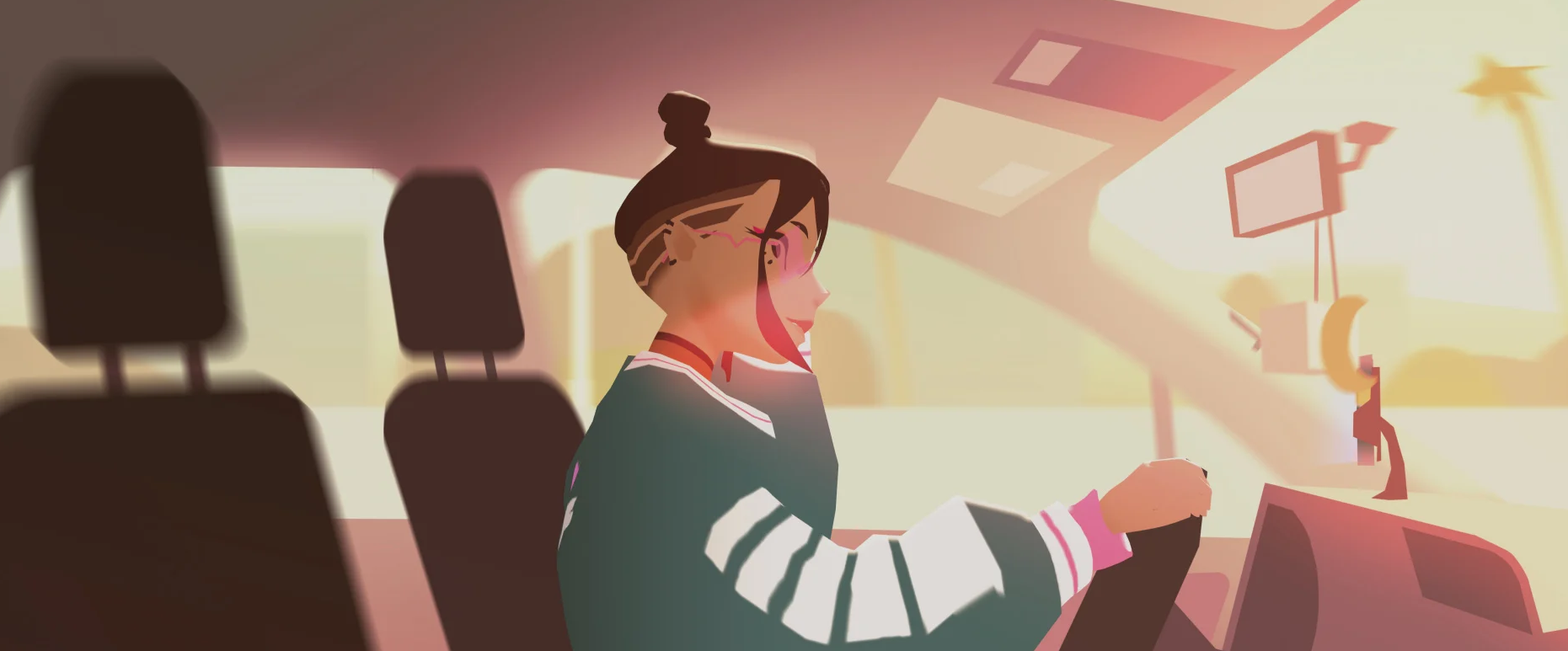
Outro
While We Are OFK is a stylish, well-voiced and interesting visual novel, it can be underwhelming in places. The gameplay sections feel unnecessary – certainly there are a lot of good visual novels that do fine with much less gameplay. The plot and characters are very much a particular thing – hyper-modern, gender diverse, conversationally lucid, but hamstrung by Gen Z procrastination and taking a long time to go nowhere. I get it, bullish cut-throat overachievers would probably not have been much fun to spend 5 hours with, but I can’t help feeling there was a midpoint.
It’s more TV series than game, but the story does heat up and the crescendo is worth the 5-hour investment. I mean it was more heartfelt and emotional than some series ever manage. If you like Visual Novels, this is going to be up there with the absolute best, and if you haven’t played many, this might be a good one to convince you of the genre. It’s aimed at 20-30 somethings, and older players may find the characters too modern, but get out of your own way, like these guys need to, and there is a hell of a lot to enjoy in We Are OFK.
A stylish, well-voiced, visual novel that tells a poignant and heartfelt story over five, one-hour episodes, We Are OFK is more interactive TV series than game. Let yourself drift away in its peaceful melancholia, but don’t expect much in the way of gameplay.

We Are OFK is available in full now on PlayStation 5 (review platform), PlayStation 4, PC via Steam and Nintendo Switch.
Developer: Team OFK
Publisher: Team OFK
Disclaimer: In order to complete this review, we were provided with a promotional code from the publisher. For our full review policy, please go here.
If you enjoyed this article or any more of our content, please consider our Patreon.
